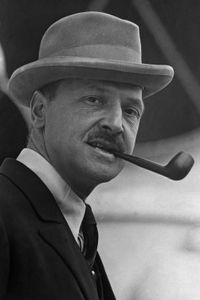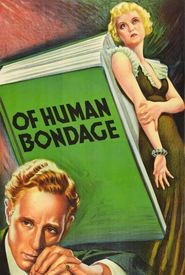William Somerset Maugham, a celebrated English writer, left an indelible mark on the literary world with his remarkable body of work, comprising a diverse array of plays, novels, and short stories. Born in the City of Light, Paris, in the year 1874, Maugham's early years were spent in this captivating metropolis before he relocated to England and later pursued his higher education at a prestigious German university.
Initially, Maugham's career path took an unexpected turn when he enrolled in a medical program in London, ultimately qualifying as a physician in 1897. However, he never pursued a career in medicine, instead opting to dedicate himself full-time to the craft of writing.
W. Somerset Maugham's literary career began with the publication of his first novel, "Liza of Lambeth", in the year 1897, which received considerable attention for its vivid portrayal of life in the impoverished slums, a theme that would become a hallmark of his work. Prior to achieving widespread recognition as a novelist, Maugham initially made a name for himself as a playwright, with his remarkable talent being showcased through a staggering four plays that concurrently ran in the West End of London by the year 1908, a testament to his exceptional skill and artistry.
Throughout his life, Maugham continued to write plays, ultimately producing a total of 32, before ultimately abandoning the theatre in 1933 to dedicate himself to the writing of novels and short stories, marking a significant shift in his literary focus.
W. Somerset Maugham's literary portfolio boasts a plethora of notable novels, with one of his most celebrated works being "Of Human Bondage", a publication dating back to 1915. Another prominent novel is "The Moon and Sixpence", which saw the light of day in 1919. The year 1925 witnessed the publication of "The Painted Veil", a novel that has since become a hallmark of Maugham's oeuvre. In 1930, he published "Cakes and Ale", a work that further solidified his reputation as a masterful storyteller. Finally, "The Razor's Edge" emerged in 1944, cementing Maugham's status as a literary giant.
In addition to his novels, Maugham's short stories have been compiled into various collections, including "The Casuarina Tree", published in 1926, and "The Mixture as Before", which debuted in 1940. Many of these short stories have been adapted for radio, cinema, and television, ensuring Maugham's work continues to captivate audiences across multiple mediums.
Notwithstanding his unparalleled popularity and commercially successful career, Maugham encountered criticism from esteemed literary critics who perceived him as merely adequate, failing to transcend the boundaries of mediocrity.
However, in a more recent reappraisal of his oeuvre, scholars and critics have reassessed his work, acknowledging Of Human Bondage as a masterpiece and his short stories as being of the highest caliber.
Maugham's distinctive writing style, marked by its crystalline clarity and simplicity, has been widely acclaimed, with many praising its accessibility and ease of comprehension.
Despite this, some literary purists have criticized his reliance on clichés, suggesting that his use of familiar tropes and motifs detracts from the overall impact and originality of his work.
Winston Churchill's protégé, W. Somerset Maugham, found himself drawn into the world of espionage during the tumultuous years of World War I, where he served as a key player in the British Secret Service. This pivotal experience would later serve as the catalyst for the crafting of numerous stories, meticulously published in the 1920s. Despite his inherent predilection towards same-sex relationships, Maugham made a concerted effort to conform to the societal norms of his time, opting to marry Syrie Wellcome in 1917 and embracing the roles of husband and father.
However, beneath the façade of this seemingly conventional family life, Maugham's true affections lay with a younger man, Gerald Haxton, with whom he shared a profound and enduring relationship. Together, they embarked on a series of extensive travels, accumulating a vast wealth of material that would later be woven into the fabric of his fiction.
Upon Haxton's untimely passing in 1944, Maugham's secretary-companion, Alan Searle, emerged as his closest confidant, serving as a constant presence in his life until the end of his days.
W. Somerset Maugham's later years were characterized by a gradual decline in cognitive faculties, ultimately succumbing to the debilitating effects of senility, a condition that robbed him of his vitality and mental acuity, and eventually, his life, at the ripe old age of ninety-one.
Throughout the entirety of his remarkable life, Maugham was renowned for his extravagant and opulent entertaining habits, where he would often throw lavish parties and receptions, replete with fine dining, wine, and merriment, which earned him a reputation as a master of hospitality.
In addition to his love of hosting elaborate gatherings, Maugham was also an avid traveler, and his extensive travels took him to numerous exotic destinations around the world, where he would immerse himself in foreign cultures, people, and landscapes, drawing inspiration from these experiences to inform his writing.
Despite the passage of time, Maugham's work continues to be celebrated and cherished for its wit, insight, and engaging storytelling, which has captivated readers for generations, and his legacy as a master of the craft endures, ensuring that his literary contributions will forever be remembered and cherished.















































